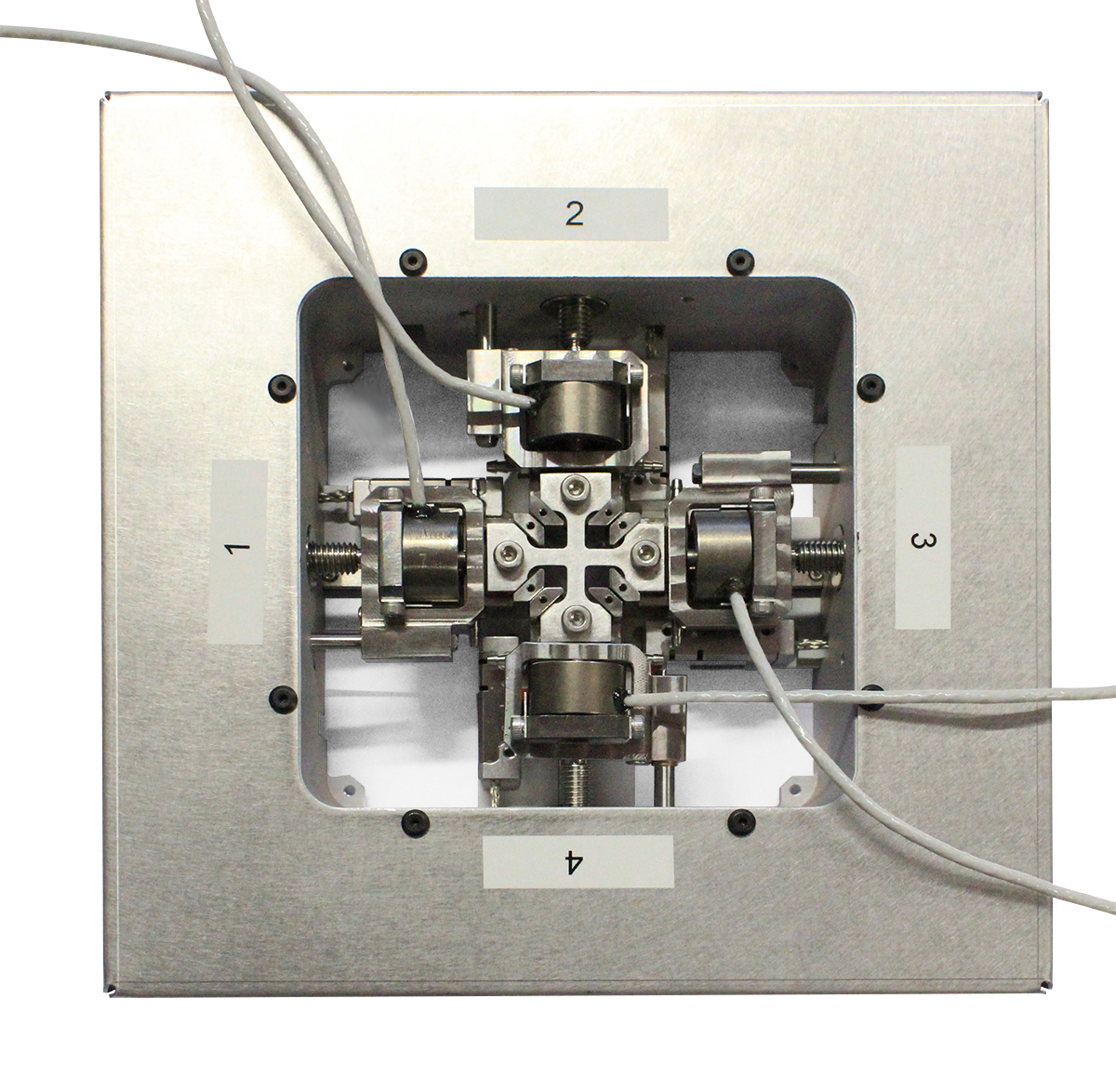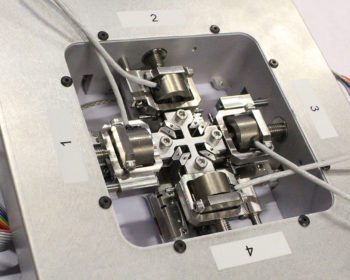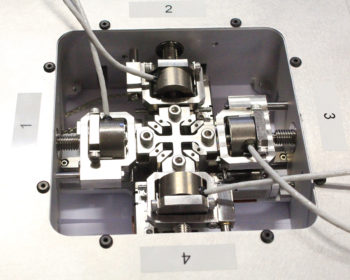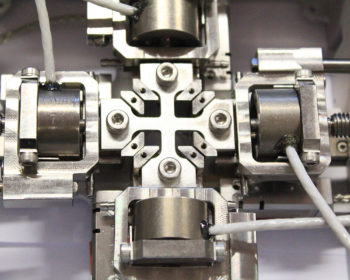
Specifications
SIRIUS
Biaxial testing is more representative when it comes to simulating stresses which we encounter in our daily life. Therefore the importance of this kind of testing has an increasing role in material characterization and modelling. However, today’s biaxial testing devices occupy a lot of space and in situ testing in constrained environments are unthinkable.
Over the last few years, we were able to develop a technology which allows to down-size considerably these machines. Confined spaces, as scanning electron microscopes, are now in our reach. Local analysis of phases, crystallographic orientation, deformation and stresses can be evaluated during an in situ test.
This new technology is able to measure both force and displacement in the 2 X and 2 Y axis. All of them can be controlled separately and simultaneously, which allows to simulate complex loading (tensile, compression and low-cycle fatigue).
Sirius Quatro is a miniature biaxial tensile stage with 4 independently controlled axes.
The device enables to apply load and displacement on the 4 arms of the cross-shaped sample.
Its compact design enables to perform all kind of biaxial tensile tests inside SEMs, optical microscopes, Raman spectrometers and XRD goniometers.
Key Features
- Tension: 3KN
- 4 motors
- 4 loadcells
- Displacement stroke: 10mm/axes
- Sample: cross shape, 40 x 40 mm
- Dimensions: 205 x 205 x 52mm
- Weight: 3Kg




